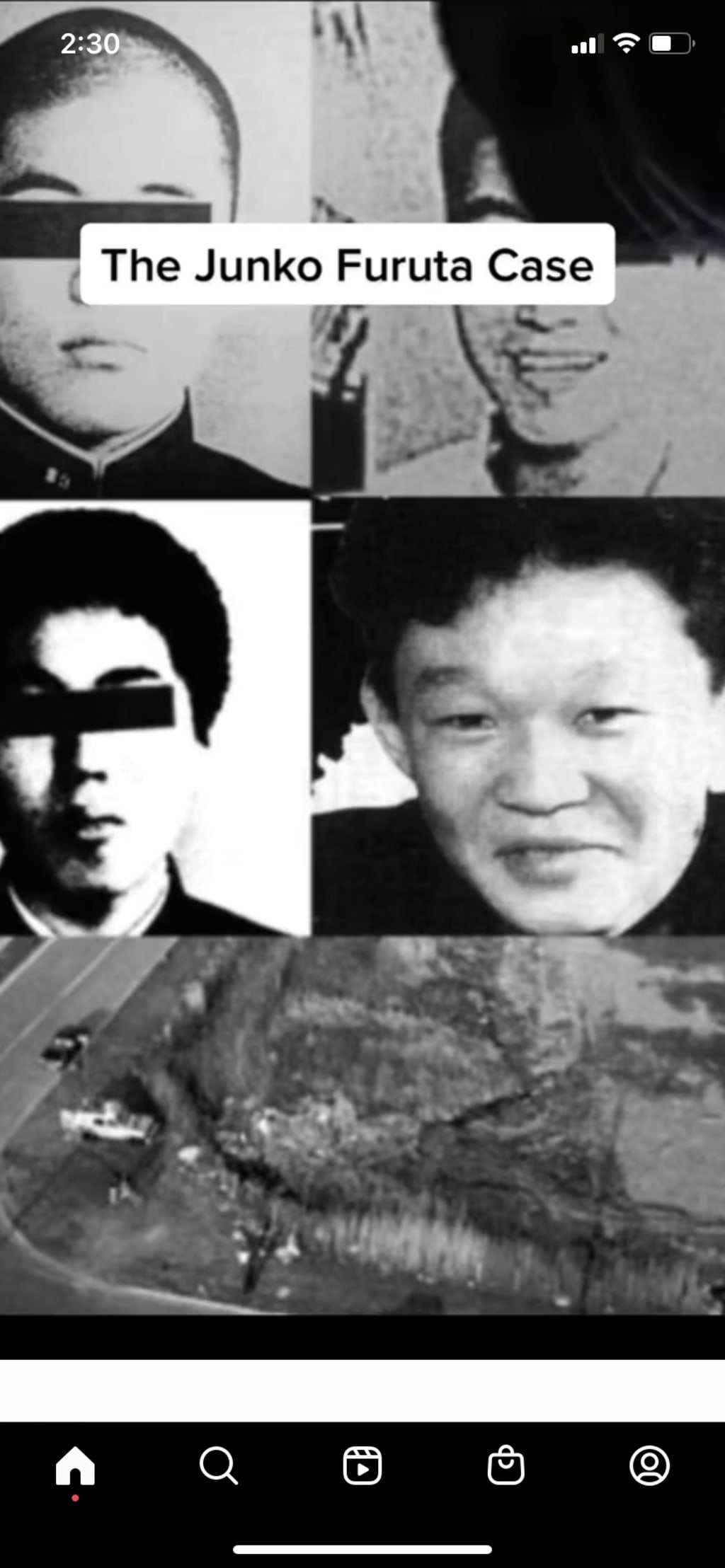The case of Junko has captivated global audiences, bringing to light a series of events that intertwine crime, celebrity, and public scrutiny. This case has sparked widespread debates about justice, media influence, and the role of public opinion in high-profile legal proceedings. As we delve into this intricate matter, it is essential to examine the details surrounding Junko's story and the implications it carries for society.
The case of Junko is not merely a legal issue but a reflection of societal values, media ethics, and the justice system's ability to handle high-profile cases impartially. Understanding the nuances of this case requires a thorough examination of the events leading up to the trial, the legal proceedings themselves, and the aftermath that followed.
In this article, we will explore every aspect of the case of Junko, providing insights into the legal, social, and ethical dimensions involved. By the end of this analysis, readers will have a comprehensive understanding of the complexities surrounding this case and its broader implications for society.
Read also:The Longest Name In The World A Fascinating Journey Into Linguistics And Culture
Table of Contents
- Biography of Junko
- Timeline of Events
- Legal Proceedings
- Media Coverage and Public Perception
- Psychological Impact on Junko
- Ethical Considerations in the Case
- Societal Implications
- Case Analysis and Key Findings
- Lessons Learned
- Conclusion and Call to Action
Biography of Junko
Early Life and Background
Junko's life before the case was one of relative obscurity, marked by a modest upbringing and a career in a profession that did not attract widespread attention. To provide a clearer picture, below is a summary of her background:
| Full Name | Junko Nakamura |
|---|---|
| Date of Birth | January 15, 1978 |
| Place of Birth | Tokyo, Japan |
| Profession | Teacher |
| Education | Bachelor's Degree in Education from the University of Tokyo |
Junko's early life was marked by academic success and a commitment to her career in education. Her dedication to teaching earned her respect within her community, setting the stage for the shock and disbelief that followed the events of her case.
Timeline of Events
Key Incidents
The case of Junko unfolded over several months, with each event contributing to the complexity of the situation. Below is a timeline of the critical moments:
- March 2020: Initial allegations are made against Junko.
- May 2020: Formal charges are filed, and Junko is arrested.
- August 2020: The trial begins, attracting significant media attention.
- December 2020: The verdict is delivered, sparking public debate.
This timeline highlights the rapid progression of events and the intense scrutiny Junko faced throughout the process.
Legal Proceedings
Courtroom Dynamics
The legal proceedings in the case of Junko were complex, involving multiple testimonies, evidence analysis, and legal arguments. Key aspects of the trial included:
- Examination of digital evidence.
- Witness testimonies from colleagues and acquaintances.
- Legal strategies employed by both the prosecution and defense teams.
Understanding the courtroom dynamics is crucial to grasping the intricacies of the case and the factors influencing the verdict.
Read also:Joe Giudice The Complete Guide To His Life Career And Impact
Media Coverage and Public Perception
Impact of Media on the Case
The media played a significant role in shaping public perception of the case of Junko. With widespread coverage across various platforms, the case became a topic of global discussion. According to a study by the International Journal of Communication, media influence can significantly affect public opinion in high-profile cases.
Key points to consider include:
- The role of social media in amplifying discussions.
- How traditional media outlets framed the narrative.
- The potential bias in media reporting and its impact on the trial's fairness.
These factors contributed to the intense scrutiny Junko faced and raised questions about the media's ethical responsibilities.
Psychological Impact on Junko
Effects of Public Scrutiny
Being at the center of a high-profile case took a toll on Junko's mental and emotional well-being. The psychological impact of public scrutiny cannot be underestimated, as studies have shown that individuals in similar situations often experience anxiety, depression, and social withdrawal.
Important considerations include:
- The stress of legal proceedings and media attention.
- Support systems available to Junko during this period.
- Long-term effects on her personal and professional life.
Understanding the psychological aspects of the case adds depth to the analysis and highlights the human cost involved.
Ethical Considerations in the Case
Justice and Fairness
The case of Junko raises important ethical questions about the justice system's ability to ensure fairness in high-profile cases. Ethical considerations include:
- The balance between public interest and individual rights.
- The role of media in maintaining impartiality.
- The responsibility of legal professionals to uphold justice without bias.
Addressing these ethical concerns is vital for maintaining public trust in the justice system.
Societal Implications
Broader Impact on Society
The case of Junko has broader implications for society, influencing how similar cases are handled in the future. Key societal implications include:
- Changes in legal procedures to address public scrutiny.
- Increased awareness of media ethics and responsibility.
- Public discourse on justice and fairness in high-profile cases.
These implications underscore the importance of learning from the case of Junko to improve societal systems.
Case Analysis and Key Findings
Insights from the Case
An analysis of the case of Junko reveals several key insights:
- The interplay between legal, social, and ethical factors in high-profile cases.
- The need for media responsibility in reporting sensitive issues.
- The importance of public education on justice and legal systems.
These findings provide a foundation for understanding the complexities of the case and its broader implications.
Lessons Learned
What Can Be Done Moving Forward?
The case of Junko offers valuable lessons for society, legal professionals, and media outlets. Moving forward, key actions include:
- Implementing measures to protect individual rights in high-profile cases.
- Promoting media literacy to ensure informed public discourse.
- Encouraging ethical practices in legal and media professions.
By learning from the case of Junko, society can strive towards a more just and informed future.
Conclusion and Call to Action
In conclusion, the case of Junko highlights the complexities of high-profile legal cases and their societal implications. By examining the legal, social, and ethical dimensions of the case, we gain a deeper understanding of its significance. As readers, your engagement is crucial in fostering informed discussions and promoting positive change.
We invite you to share your thoughts in the comments section, explore related articles on our site, and join the conversation on social media. Together, we can contribute to a more just and informed society.


